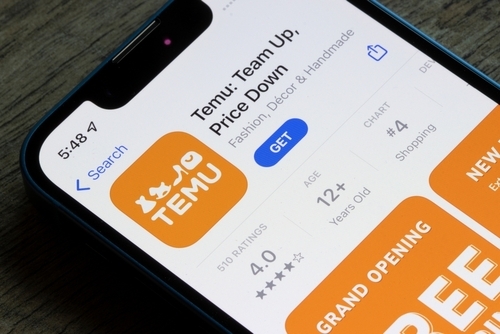Toys and entertainment brand PopMarket says Temu is its fastest growing sales channel.
The time is right for U.S.-based retailers to sell on Chinese-based marketplace Temu, said Tim Hinsley, senior vice president of retail sales at Alliance Entertainment.
PopMarket, which is owned by Alliance Entertainment, began selling on Temu in Q4 2024. Sales started taking off in March 2025 and Temu is now PopMarket’s fastest growing channel, Hinsley said. PopMarket has sold more than 150,000 items on Temu.
PopMarket sells novelty products, such as collectibles, figurines, toys, DVDs and other pop culture goods. Alliance Entertainment owns several direct-to-consumer brands including DeepDiscount, PopMarket, ImportCDs, Critics’ Choice Video, Collectors’ Choice Music, Movies unlimited and WowHD. Most of PopMarkets products are $10 or less, which Hinsley said appeals to Temu’s bargain-hunter audience.
Temu’s business rollercoaster
Temu launched in 2022 and is owned by Chinese-based commerce group PDD Holdings. Temu’s marketplace sells low-cost goods, often shipped directly from Chinese manufacturers and suppliers, to global shoppers. The trade-off for low prices is often a longer shipping period.
The marketplace quickly became popular, amassing hundreds of millions of global downloads, according to a study from Setapp, a membership of curated apps. Recently, however, Temu has faced headwinds in the U.S. from increasing tariffs on Chinese goods, and the expiration of the de minimis tax exemption, which allowed shipments to enter the U.S. without a tax if the value of the goods was less than $800. Major news outlets also reported that Temu significantly reduced its advertising spend in the U.S. for months. Although, Temu has recently resumed advertising on Google and Meta.
In November 2024, Temu opened its platform to all U.S. sellers. The move allows Temu to provide faster shipping to local shoppers, as U.S sellers often will already have their goods stored in U.S.-based warehouses. And unlike shipping directly from Chinese warehouses, local sellers may not have relied on the de minimis rule to keep their prices low.
“No matter how policies shift, we’ll continue to strengthen our operations in the markets we serve, helping more local merchants grow on our platform and enabling more orders to be fulfilled from local warehouses,” PDD chairman and co-CEO Lei Chen said in a recent earnings call.
PopMarket’s multichannel marketing strategy
PopMarket has been a beneficiary of this, as Temu invited the brand to sell on the platform. PopMarket sells on dozens of marketplaces, including Amazon, Walmart, eBay, and Urban Outfitters. The brand is always looking for new channels to grow its sales, Hinsley said.
Selling on a marketplace means PopMarket’s products are in front of that brand’s audience with little marketing effort on its part. (PopMarket has yet to purchase ads on Temu’s marketplace.)
Overall, PopMarket employs the typical marketing channels — social media, email, SMS — and it directs all those channels back to its own direct-to-consumer site.
Hinsley said the brand does not care where shoppers make the purchase as long as they make one. While profit margins are higher when customer purchase on its own site, the brand has to consider the total cost of the sale. For example, PopMarket may have had to spend marketing dollars to acquire direct-to-consumer shoppers and it has to pay the credit card processing fee, which it doesn’t have to do for it products at other merchant sites.
“When you are selling across so many channels, you have to think of it holistically,” Hinsley said. “You don’t really care where the sale comes from, as long as you take care of the consumer.”
PopMarket’s future plans on Temu and beyond
Although Temu has had challenges, Hinsley is not worried about the future of the marketplace and it will continue to sell its products there.
“Temu has built a really strong customer base, and they take the time to listen to sellers,” Hinsley said. “There is a group of shoppers want to be on Temu, that’s where they want to be to find stuff. And will put our products in the place where the customer sees it.”
Going forward, PopMarket plans to add the majority of its product to Temu. It’s been a slow process to onboard all of its merchandise as Temu verifies PopMarket has the licensing agreements for all of its products, Hinsley said.
From a marketing perspective, PopMarket is looking into generative AI for content creation and if any new social media platforms will become more popular. PopMarket dabbled with live shopping, but did not deem the channel as a profitable endeavor for its low-price products.




